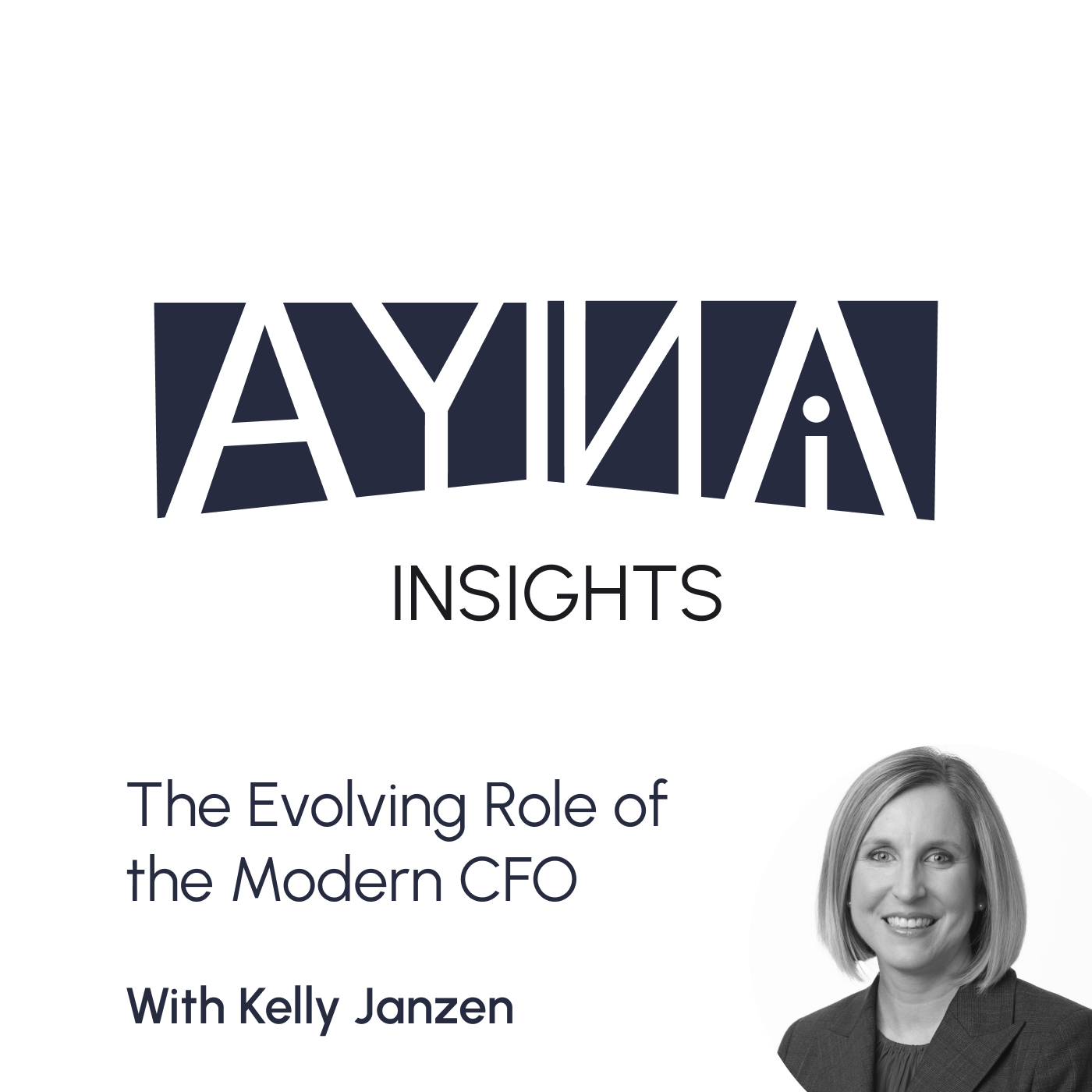Episode Transcript
[00:00:03] Speaker A: Welcome to AINA Insights, where prominent leaders and influencers shaping the industrial and industrial technology sector discuss topics that are critical for executives, boards and investors. INA Insights is brought to you by INA AI, a firm focused on working with industrial companies to make them unrivaled segment of ONE leaders. To learn more about INA AI, please visit our website at www.ina.AI.
[00:00:40] Speaker B: Hi everyone and welcome to another episode of INA Insight podcast. We are joined today by Ed Dowling, CEO of Compass Minerals, a company at the forefront of supplying essential minerals that power everyday life.
From salt for highway safety to plant nutrition for agriculture, to lithium for the emerging energy storage economy.
Ed dowling brings over 30 years of global leadership in mining and minerals. Before joining Compass Minerals, he served as the CEO of SSR Mining, Meridian Gold and held senior roles at De Bears and Cleveland Cliffs. He has also chaired Polyus and Copper Mountain Mining and currently sits on the board of Tech Resources.
A former US Navy Petty Officer, Ed holds bachelor's, master's, and doctoral degrees in mineral processing from Penn State University.
Ed, it's a pleasure to have you with us today.
[00:01:35] Speaker C: Yeah, thanks for the invitation and look forward to the discussion.
[00:01:39] Speaker B: Ed Diving straight into the hot topic of the day, we want to discuss tariff and the current environment and its impact.
So coming straight to Compass Minerals, how has Compass Minerals felt the impact of the current 2025 tariff regime?
[00:01:55] Speaker C: Yeah, we've experienced impacts on a couple of different levels which I'll get to in a second, you know. But first, Compass Minerals responsibly produces essential minerals as you said, from the earth is a variety of salts for highway de icing to promote commerce, for example, when it's snowing or icy, agricultural products, water treatment, chemical applications and human consumption for salt. Salt is the only rock that humans actually eat and we make plant nutrition products for specialized applications. These are non chloride type fertilizers really for things like almonds and my favorite wine grapes and lithium and magnesium, which are both deemed critical minerals by the United States.
The terrorists affected our business initially due to the uncertainty on the applicability to our international trade and how this initially impacted us is we held off even though our market had expanded due to a really a good snow year last year. Now we when we say a good good winter, we mean we get snow.
Would like a nice warm winter.
But Steers and Compass Minerals are pretty well aligned. We held off on expanding production to meet market needs until the impact of the tariffs was clarified not only for our imports between Canada and the United States, for example, but also using commercial vessels and many other aspects of that.
After some time that was clarified that our products and really logistical network were later deemed and designated as USMCA compliant and exempt from the tariffs themselves.
Nevertheless, there was an opportunity cost that against our plans because we didn't want to invest in expanding production, which we could have done until it was really clear. We'll talk a bit more of that later in one of your later questions.
But despite being USMC A compliant, that's trade agreements between United States, Mexico and Canada, we're now seeing sort of second order impacts really on the availability and the cost of supplies to really serve our operating business units. We're seeing inflation and some cases the inability to obtain things that were before pretty easy for us to get to source.
[00:04:32] Speaker B: That's an interesting segue into the next question because as you're alluding to, so these shifts or these tariffs have now become structural rather than temporary. Right. So it's not a supply shock anymore. They're here to say for at least for the foreseeable future. So how does that shape your strategy as compass?
[00:04:49] Speaker C: Yeah, I'm sure like everyone else who may be listening to this, it's required a really restructuring of our supply trains. Not so much on our outbound in terms of our products, but more on our inbound supplies to serve our business. Kind of advancing alternative suppliers, different logistical networks and contingency planning around these second order impacts. You know, we've had multi sourcing, you know, before we may have source sales agreements, I'm sorry, source agreements with certain key suppliers. And what we found is that today, whereas before the risk associated with that was considered relatively low and through a sole source agreements, for example, you might have the benefits of lower costs, but the risks associated with that now for certain parts of our supply chain are probably too high. So it's required us to advance sort of multiple suppliers and more complexity to our businesses associated with that.
[00:05:51] Speaker B: Got it. So just to make it a little more real for our listeners. Right. So among salt plant nutrition, lithium, which business for COMPASS has been the most exposed to tariffs? And if you can give us an example on how you are adapting in.
[00:06:05] Speaker C: One of those cases, among salt and lithium and our metals business, again our products are USMCA excluded or really designated as critical minerals.
So again the supply has been more in our inbound supply chain, but it's really affected our salt business probably more than than the other business segments that we have. And it's because there's a lot of specialized equipment that we use, for example for underground mining or Processing these salts.
And you know, there's generally not a lot of suppliers and these businesses are very global to serve really large pieces of mining equipment, for example, or the way that we move materials around at underground mines or on our surfaces, you know, generally there's just a handful of suppliers globally that supply this type of equipment. And as I mentioned before, generally you would end up with sort of a relationship with a sole source supplier.
But it's required us to really reassess that sort of relationships and start diversifying our supply chains to really minimize that risk. And in some cases, as I mentioned before, parts of which would have been readily available are really not.
We find that we can move things across the borders.
There's really no particular impact for that. But it's more difficult to get across the borders now, even in terms of materials and even sometimes people.
You know, when you're going across the border in a multi national company, you know, we're very careful about making sure that people are not carrying letters of invitations and things like that, and making it clear to customs authorities, for example, that what sort of work they're doing and what sort of work they're not doing.
So we see that and I've actually suffered that a week ago myself. Luckily I had to let them with me.
[00:08:10] Speaker B: All right, and so just shifting tracks a little bit. Right. So one of the, one of the discussions that is probably having being had in every executive conference room across the country, right. Is how do you balance absorbing tariff costs versus passing them through to customers in essential markets? So how's Compass dealing with it and what are your views on the topic?
[00:08:33] Speaker C: We got started on this really early when it became clear that this was a risk to the business even before the tariffs were enacted. So, you know, we're really careful about talking about costs and our sales strategies. But I'll say what we told our shareholders, which is public information.
And so we started engaging with our customer base before tariffs were actually enacted. And we know really, really to let them understand that this was risk. Some cases, some of our customers were pretty oblivious to what this could mean to them. And others, you know, were, were concerned about it. You know, our initial strategy was, you know, look, you know, we pre position material like millions of tons in some cases of materials across the border into warehouses to serve your needs over the course of a year putting an inventory. But if all of a sudden that's being subject to tariffs, you know, sitting in a warehouse because we shipped across the international border, you know, you're, you're going to need to pick up that difference.
Different parts of the business had different reactions to that. Some of them said, yeah, okay, yeah, we could do that. And that's more on kind of higher value products is what we've seen.
And more bulk sort of materials, which, you know, for example, highway deicing salts.
Where we serve states and municipalities.
There was no welcomeness or no openness to be able to pass that along to them. These concepts are generally negotiated here in advance. That in itself is what slowed us down from ramping up some of our operations and putting materials into.
Into inventory to serve them over the course of the year, the winter season coming here in a couple of months.
So we've seen a different.
In different areas. You know, other parts of the business are really just served domestically. And so it's really no, no issue there, but it's a little bit different. I think in general generalization. Higher value products, which we see with our consumer and industrial type salts, we were able to get agreements that if the tariffs actually came to be that we'd be able to pass that along and say the larger bulk. We were unsuccessful in doing that. So we've had to modify our business. It costs us many millions of dollars in opportunity costs this year.
[00:11:04] Speaker B: That's an interesting observation there, Ed. Right. So we've talked about the various resilience levels. Right. You've talked about multi sourcing, dual sourcing. You've talked about how do you scale operations.
There could be options for reshoring. Right. So you negate the effect. So what have you found to be the most relevant at least for Compass right now?
[00:11:23] Speaker C: Yeah, really for us it's on our inbound now. Initially we were looking at everything in terms of contingency planning. But what does actually come to bear to this point is dual sourcing.
Making sure that we have alternative supply.
That really critical things for our business.
Really looking at.
Whereas before a lot of our materials we go across border and a lot of consumable materials in particular, we're going cross border looking at what the alternatives are in the different nations that we. We do business. We do Business in the U.S. uK and in Canada largely. And so the. So it's really just redoing our supply chains to build more resiliency in alternatives. If there's an issue that emerges.
[00:12:13] Speaker B: Just to hear the other side of the story. Right. Does the current direct landscape create opportunities for North American lithium producers as well? Are there anything that you can share with us?
[00:12:23] Speaker C: Yeah. You know, both lithium and magnesium are, which we produce are, are critical minerals and deemed as really essential and to the U.S. economy, really sort of defense efforts.
But you know, the most of the lithium. Let me first say as a mining person that the lithium content on the, in the earth's crust is not low, it's relatively high. So there's a lot of lithium out there. The question is how can you really produce it at a, at a low cost and, and a high quality needed for by the customer base. So. But almost all US production is consumed domestically.
Imports into the US largely from South America, maybe Australia, are from very low cost deposits.
So you know, despite the tariffs, they still remain very competitive in the domestic market, but are now more motivated to serve markets where they can achieve higher margins. So they're actually more motivated now rather than bringing their kind of low cost lithium, which would be subject to tariffs in some cases into the U.S. for example, they're more motivated to go to markets, Europe and Asia, for example, where they achieve higher market, higher margins. More importantly, what we see, the results of the administration and perhaps the tariffs related to this, to the lithium market in general is really just a slowdown in policy supporting conversion, for example vehicles to more efficient and clean EVs, for example. So I think we all read about that and see that and that has a direct impact on that sort of slowdown in the uptake. For example, electric vehicles affects the overall.
[00:14:19] Speaker B: Market demand coming up to the broad industry and policy outlook. Right. So in your opinion, do tariffs ultimately help US producers remain competitive or do they create more volatility? Volatility in the global trade?
[00:14:32] Speaker C: Well, look, I think we all understand the motivation for a level playing field. I think I'd say that the first statement, and you know, different nations have had different sort of trade policies for a long time and I think the administration is trying to address that. That said, tariffs by their very nature are protective and as a result really undermine competitive pressures, you know, you know, really resulting in productivity by participating in a competitive global market. I think ultimately tariffs are inflationary for domestic consumers. I think we are seeing that here in the US and elsewhere around the world as these supply chains are being being reordered. So I think you may see it help certain segments of production in the US you know, and that may be good for a period of time, but ultimately you've got to be competitive and if you're not competitive everywhere, you're really not competitive. So we'll, you know, we're all supportive of a level playing field. I think that's easy to say. But you know, competition in business is good it's good for the consumer.
Terrorists, I think, undermine that competition.
[00:15:50] Speaker B: According to you, Red, what role should industrial CEOs play in policy conversations around tariffs and supply chain resilience?
[00:15:57] Speaker C: Yeah, the companies and CEOs, I think related industry associations, all stakeholders, have been engaged with policy conversations and impacts, demonstrated impacts of that and really offering sort of alternatives. And I'd say for the most part this engagement has been with the administration and with Congress has been very constructive. And, you know, we've seen some positive changes as a result of that. I think that's something that's going to be needed to stay really vigilant about.
You know, the.
I think one of the issues we're dealing with is the lack of consistency in what policy really is and sort of, you know, trying to stay abreast with kind of a moving policy, I think is difficult. So, you know, I think consistency is a really important thing.
[00:16:54] Speaker B: On a closing note, Ed. Right. So if you had one piece of advice for our industrial leaders navigating this tariff volatility, right. What, what would it be?
[00:17:05] Speaker C: Look, you know, as we all know that you can, you know, understand risk and you can invest into risk, because if you understand the risk, you could put elimination or mitigation strategies associated with that then.
And you know, that's a managed risk and that's a good thing sometimes because generally risk and reward go hand in hand. But you cannot invest into uncertainty. And I think that's a real problem trying to, you know, for people running businesses in different parts of our economy and, you know, the, the. I think we need to press for clear and really consistent policies and, and give us a chance to really understand how to navigate our businesses through kind of a different playing field at this point. So I think, you know, the policy seems to keep moving and I think consistency, I think, moves uncertainty into something you could consider risk.
So I think the uncertainty by its nature is really dangerous for our economies.
[00:18:17] Speaker B: Okay, that's a great thought, Ed. Thank you so much for your time as always, really appreciate your thoughts and sharing the experiences from Compass Minerals and how you're navigating the tariff regime. Thanks again.
[00:18:28] Speaker C: Yeah, quite welcome. It's nice to see you. And best of all.
[00:18:36] Speaker A: Thanks for listening to INA Insights. Please visit INA AI for more podcasts, publications and events on developments shaping the industrial and industrial technology sector.
Sam.


